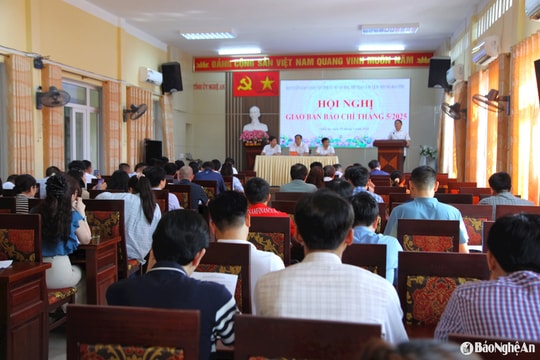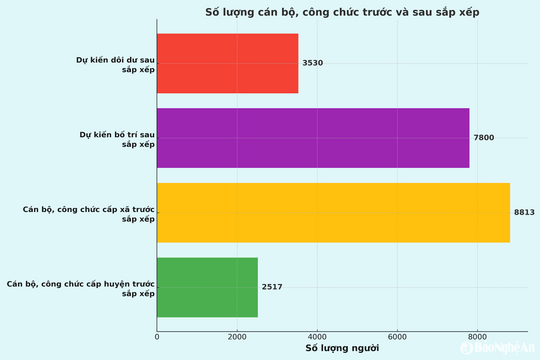Prime Minister: Urgently arrange sufficient funds and pay laid-off workers 'as soon as possible'
Concluding the Government's special meeting on the arrangement and organization of administrative units at all levels and the construction of a 2-level local government organization model on the morning of May 9, Prime Minister Pham Minh Chinh directed the urgent arrangement of sufficient funds and provided instructions on advance funding to pay "as soon as possible" to those who requested leave under the regime and those who were redundant during the process of arranging the apparatus.
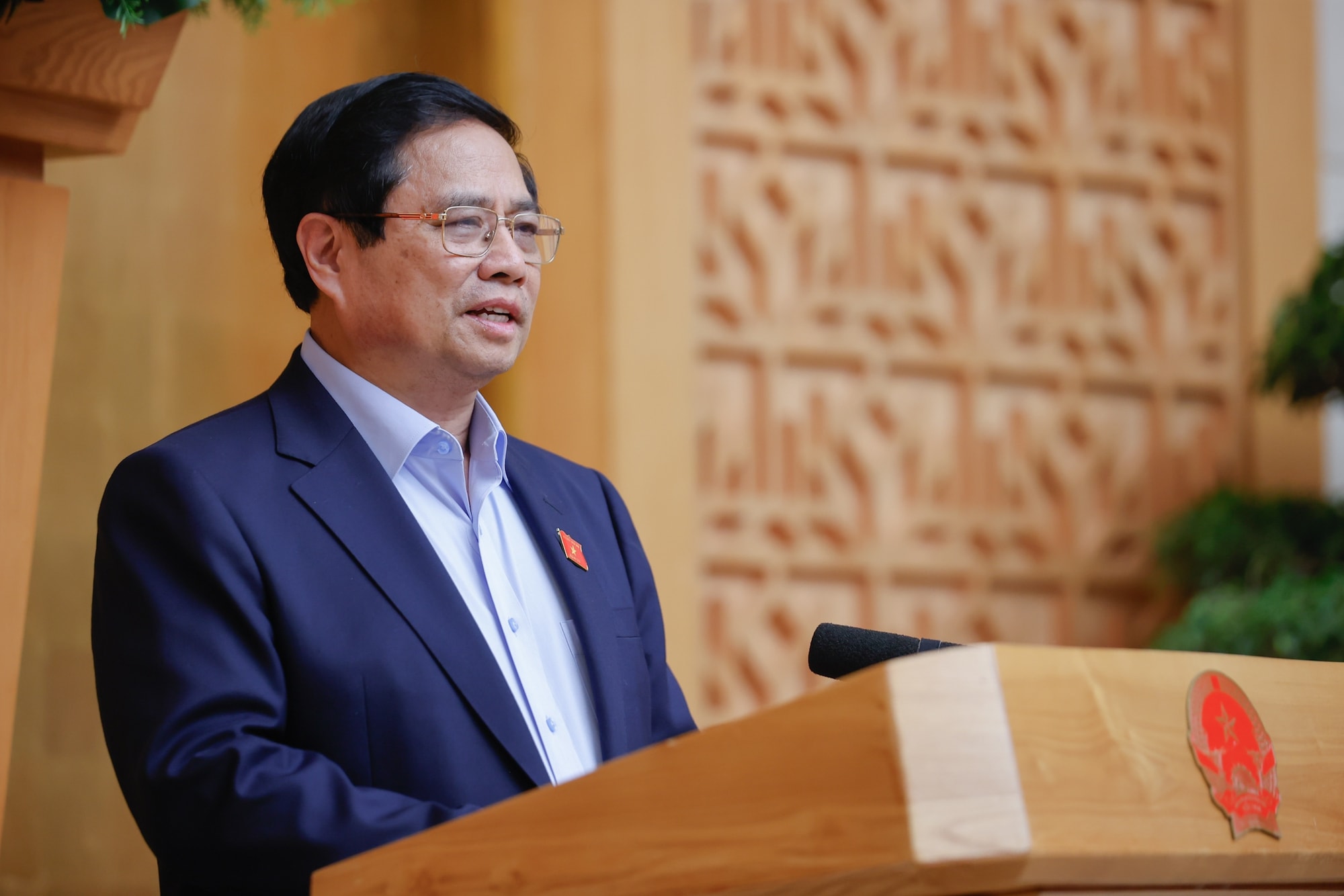
At the meeting, the Government listened to, discussed and commented on the report on the implementation of the arrangement of administrative units at all levels and the organization of two-level local governments; the report on the arrangement of commune-level administrative units, the report on the arrangement of provincial-level administrative units to submit to the National Assembly and the National Assembly Standing Committee for consideration and approval.
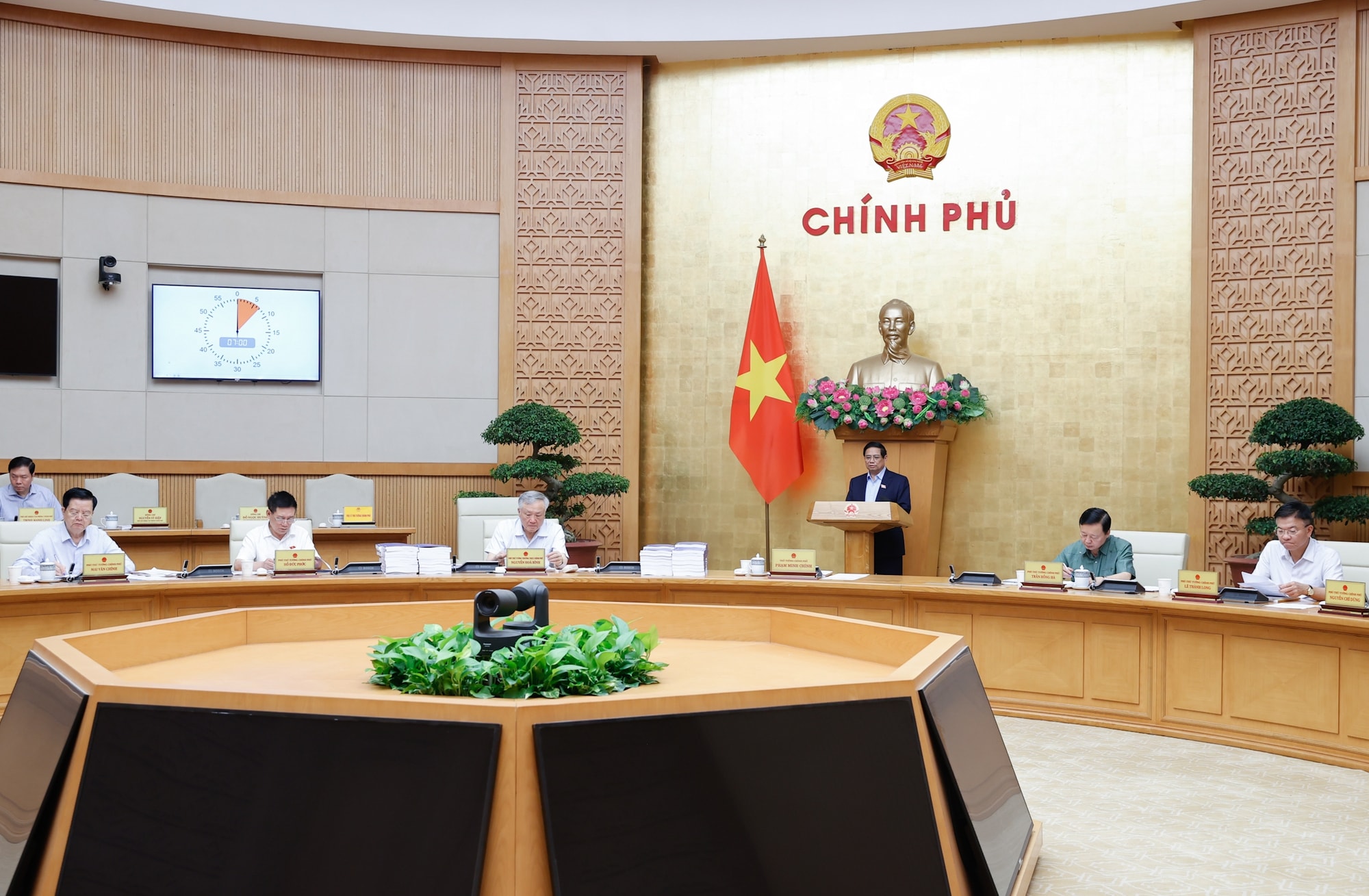
Reduce 6,714 commune-level administrative units
According to the Government's Steering Committee for the reorganization of administrative units at all levels and the construction of a 2-level local government organization model, with the spirit of "running and lining up at the same time", the entire political system got involved. Immediately after the Politburo's dissemination conference ended, localities established Steering Committees and issued plans to implement the reorganization of administrative units at the provincial and communal levels.
All localities have focused on accelerating progress and completing the collection of public opinions with an average consensus rate of nearly 96%; People's Councils at provincial, district and communal levels nationwide have issued Resolutions approving Projects with a majority consensus rate of 100%.
By May 8, 2025, all documents and projects have been completed to advise the Government to submit to the National Assembly Standing Committee for consideration and decision on the arrangement of administrative units of 63 provinces and cities (belonging to 34 new provinces and cities) and the project dossier on the arrangement of provincial-level administrative units to be submitted to the National Assembly for consideration and decision. Accordingly, after the arrangement, it is expected that the whole country will have 34 provinces and centrally-run cities, 3,321 commune-level administrative units, a corresponding reduction of 29 provincial-level administrative units and 6,714 commune-level administrative units.
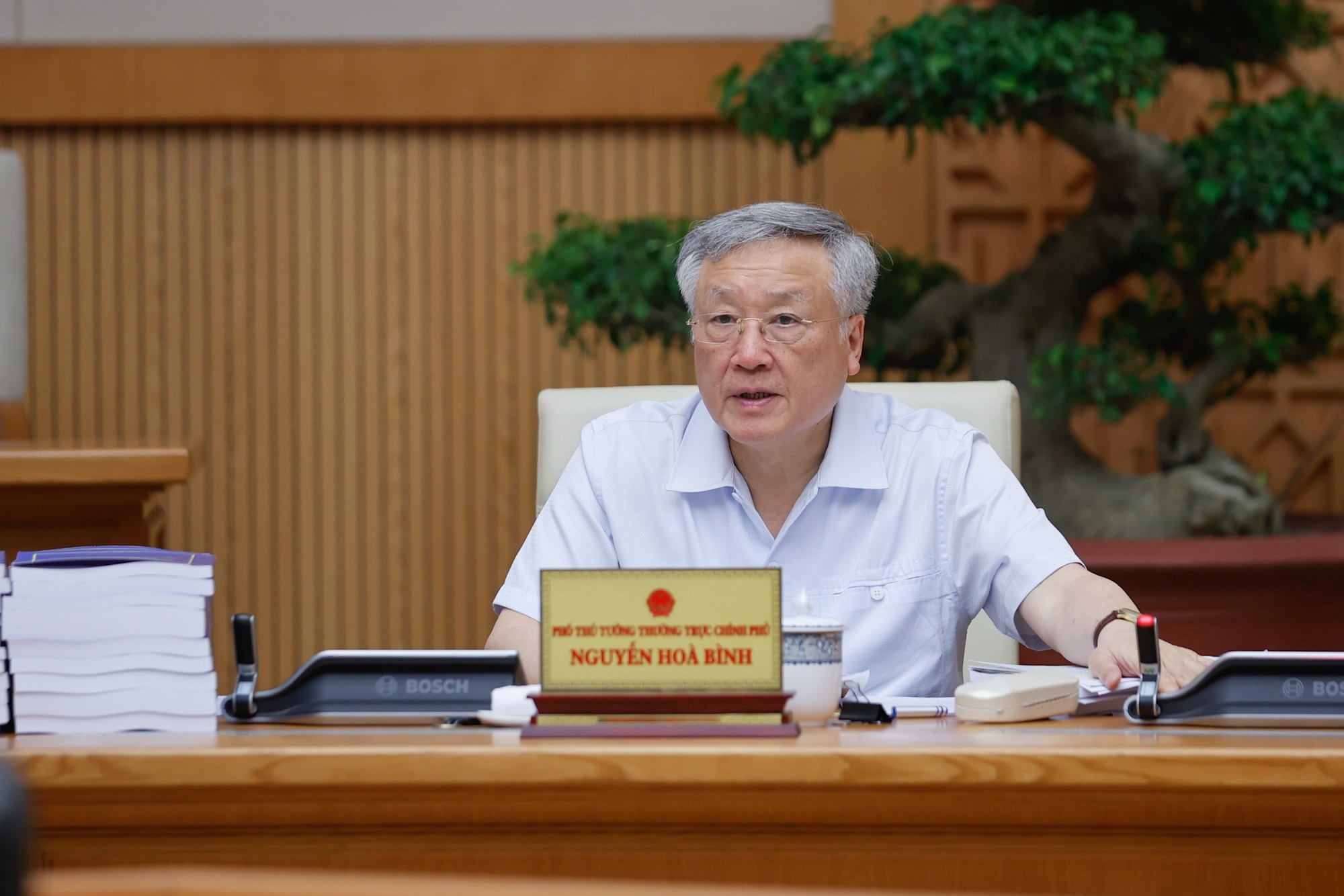
It is expected that after the arrangement, the number of provincial-level cadres, civil servants and public employees will be about 91,784 people, a decrease of 18,449 people; the number of communal-level cadres and civil servants will be about 199,000 people, a decrease of about 110,000 people; the number of non-professional workers at the communal level nationwide will end at more than 120,000 people.
The Steering Committee's report also estimates the budget for salary savings and administrative expenditure norms in the period from 2026-2030 nationwide thanks to the arrangement of administrative units at all levels and the organization of 2-level local governments; expected payment of regimes and policies for retired subjects; social insurance premiums for cases of early retirement without deduction of pension rate.
Delegates said that the arrangement and organization of administrative units at all levels and the construction of a two-level local government organization model are big and difficult issues, involving many agencies and many fields, with urgent time. Along with completing the project to submit to the National Assembly, provinces and centrally run cities need to continue to promote their proactive and active role in implementing the Project locally; in which, proactively prepare necessary conditions in terms of facilities, headquarters, finance, public assets, personnel arrangement and assignment plans... to implement immediately when the National Assembly and the National Assembly Standing Committee issue Resolutions on the arrangement of provincial and commune-level administrative units; at the same time, proactively develop plans to perfect the agencies and organizations of the Party, government, Fatherland Front and local organizations after the arrangement.
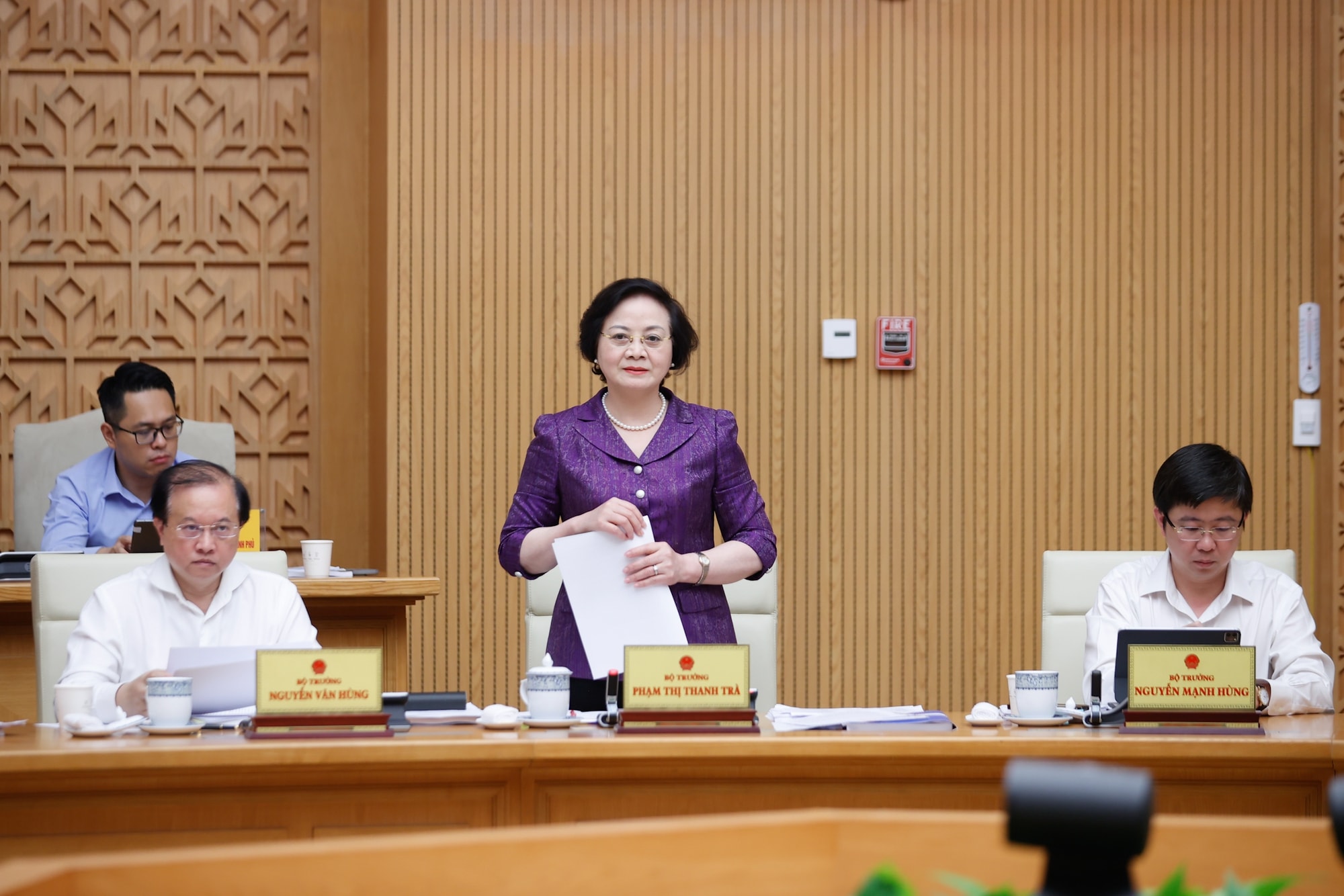
Along with that, implement publicity and transparency in developing personnel arrangement plans and resolving regimes and policies for cadres, civil servants, public employees and workers affected after the arrangement; maintain good operation of the government apparatus at all levels during the transition period, ensure that all state management tasks in the area are carried out continuously, effectively, without interruption in the provision of administrative services and public services to serve people, organizations and businesses.
People highly agree and expect
Concluding the meeting, Prime Minister Pham Minh Chinh highly appreciated the opinions of the delegates; agreed to complete the Government's submissions to the National Assembly and the National Assembly Standing Committee on the arrangement of commune-level administrative units and provincial-level administrative units.
Summarizing 5 highlights of what has been done, the Prime Minister said that the number of provincial-level administrative units is expected to decrease from 63 to 34; the number of commune-level administrative units from 10,035 to 3,321, a decrease of 66.91%; and no district-level administrative units will be organized.
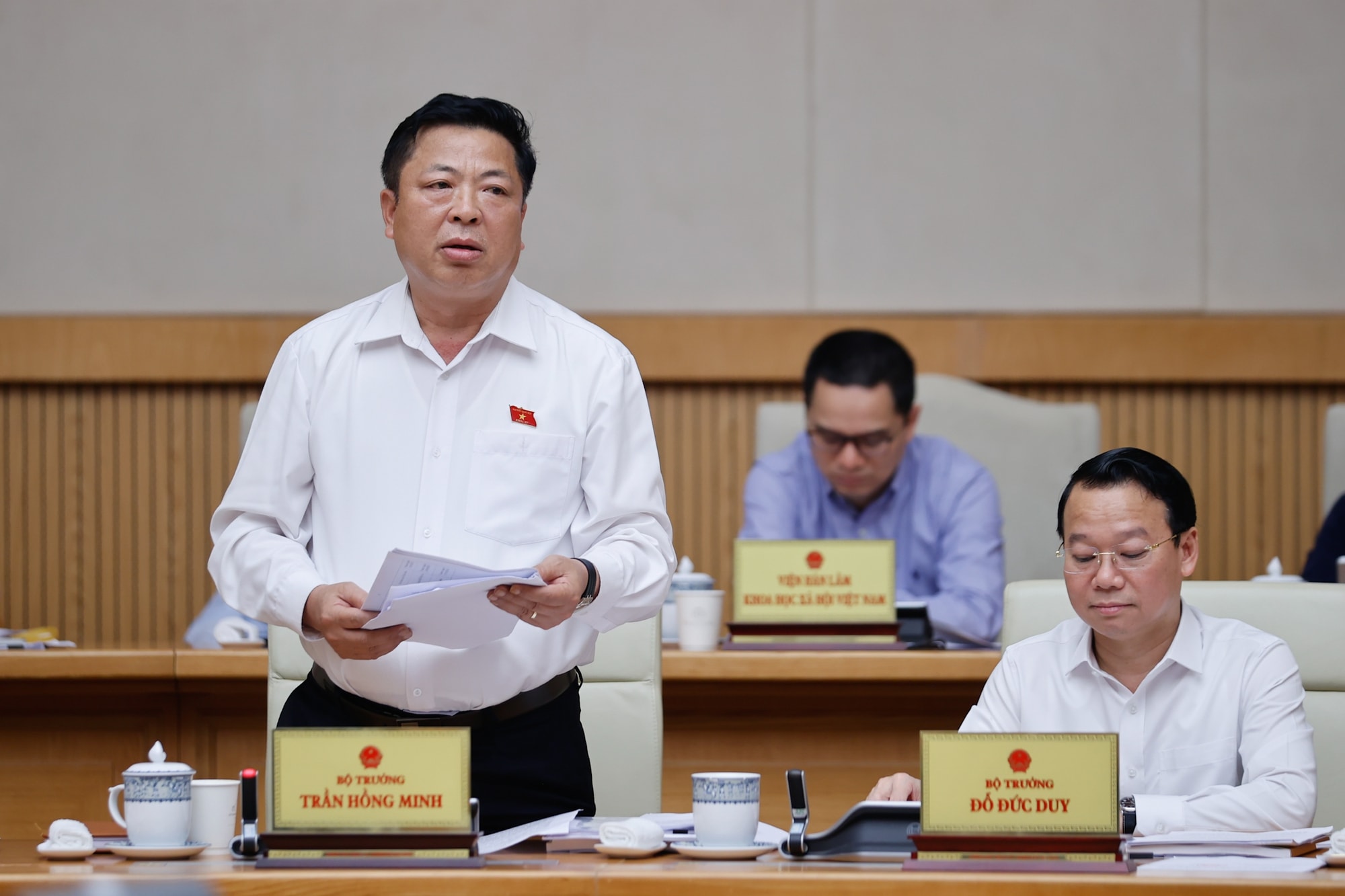
The processes and procedures for administrative unit arrangement were strictly implemented according to the direction of the Central Committee, the Politburo and regulations; thoroughly implemented and disseminated throughout the political system and widely consulted the people; received high consensus, in line with the Party's will and the people's wishes; the people expected that after the arrangement of the activities of the two-level local government, the activities of the two-level local government would be more effective and more convenient for the people and businesses.
According to the Prime Minister, along with the arrangement of administrative units, the Government, ministries and branches also actively develop and issue documents and regulations for synchronous implementation, with the spirit of one law amending many laws, one document amending many documents; urgent issues must be done immediately, issues that need to be assessed for impact must be studied further, not perfectionist, not hasty.
Along with that, the agencies have developed policies for cadres and civil servants affected in the process of restructuring the apparatus and local administrative units; while doing so, they have learned from experience, and done a good job of ideological work to create high consensus. After stabilizing the apparatus according to the 2-level local government model and implementing policies for redundant cadres, it is necessary to arrange and assign cadres to operate immediately, ensuring the good operation of the apparatus at all levels, without interrupting work.
About the upcoming work,The Prime Minister requested to urgently complete the dossier on the arrangement of two-level administrative units to submit to the National Assembly for consideration and approval. After the National Assembly approves, the implementation must be organized immediately. The Prime Minister assigned 26 working groups of Government members to inspect, urge, guide localities in implementation and resolve any arising problems.
The Ministry of Finance urgently arranges sufficient funds to pay for those who request leave under the regime and those who are redundant during the process of restructuring the apparatus of the political system and local administrative units, and provides instructions on the advance payment of funds from ministries, branches and localities to pay as soon as possible, avoiding congestion; as well as providing instructions on the arrangement of assets and facilities during the process of restructuring administrative units.
Directing localities to continue reviewing the work of organizing officials, leaving no gaps in providing public services to serve people, organizations and businesses, Prime Minister Pham Minh Chinh requested provinces and communes to establish public administrative service centers, providing administrative procedures regardless of administrative boundaries.
The Prime Minister emphasized the need to urgently build and perfect institutions and legal documents related to the organization of two-level local governments, strictly implement the Central Government's direction on promoting decentralization and delegation of power to localities along with resource allocation, improving implementation capacity and strengthening inspection and supervision; Central agencies focus on building strategies, plans, institutions, mechanisms, policies, resource mobilization mechanisms, leadership, implementation direction, designing inspection and supervision tools, and rewards and disciplines.
The Prime Minister noted that, along with the arrangement and organization of administrative units at all levels and the construction of a two-level local government organization model, ministries, branches and localities must focus on implementing regular tasks and other major and important tasks, striving to achieve the economic growth target of 8% or more in 2025; removing difficulties and obstacles in more than 2,200 projects nationwide with a total capital of nearly 6 million billion VND and more than 300,000 hectares of land that are currently stuck.
In particular, the organization has well implemented the "strategic quartet" according to the Resolutions issued by the Politburo, including: Resolution 57 on breakthroughs in science and technology development, innovation, and digital transformation; Resolution 59 on international integration in the new situation; Resolution 66 on innovation in law making and enforcement; Resolution 68 on private economic development.
The Prime Minister suggested that with high determination, great efforts, and drastic actions; clearly assigning people, tasks, time, products, responsibilities, and authority; being more rapid and bold so that the whole country can complete the set goals and firmly enter the new era./.


